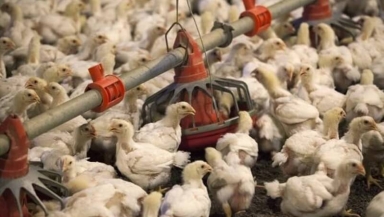
Egg rationing is now being implemented in the United States while prices of eggs have skyrocketed as the avian flu has affected around 46 million chickens and turkeys in the country.
Almost 80 percent of those are egg-laying hens, the US Department of Agriculture said, admitting that the egg industry is now down on its knees.
Avian flu cases have been spreading in the US like wildfire since April. Thousands of poultry are being infected each week as the problem has escalated into a national crisis level.
H-E-B, one of the largest grocery chains in the US with some 350 supermarkets, has started displaying in its shops across Texas 8 1/2-by-11-inch signs that read "Eggs (are) not for commercial sale. The purchase of eggs is limited to 3 cartons of eggs per customer."
"The United States is facing a temporary disruption in the supply of eggs due to the Avian Flu," a statement from the company read. "H-E-B is committed to ensuring Texas families and households have access to eggs. The signs placed on our shelves last week are to deter commercial users from buying eggs in bulk."
Prices have soared as the supply runs low. The average price of eggs in shells has just about doubled since the end of May, according to the Department of Agriculture.
Large food manufacturers have to shell out more cash in buying wholesale "egg beaters," or eggs sold in liquid form as they cost more than $1.50 per dozen from $0.63.
The increase in egg prices also affected the prices of products that include eggs in their ingredients. These include breads, pastas and cakes. That spells a lot of trouble for food service providers like McDonald's, which sells millions of egg-filled meals every morning.
Whataburger, a fast-food chain based in Texas, has been forced to shorten its breakfast hours in the meantime.
"We know this is no fun for anyone and hope this doesn't last long, and we apologize the supply of eggs cannot currently meet demand," the company announced in its Facebook page.













